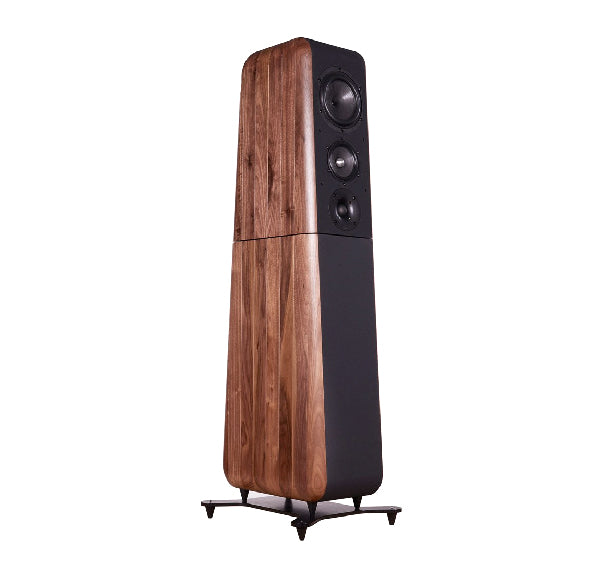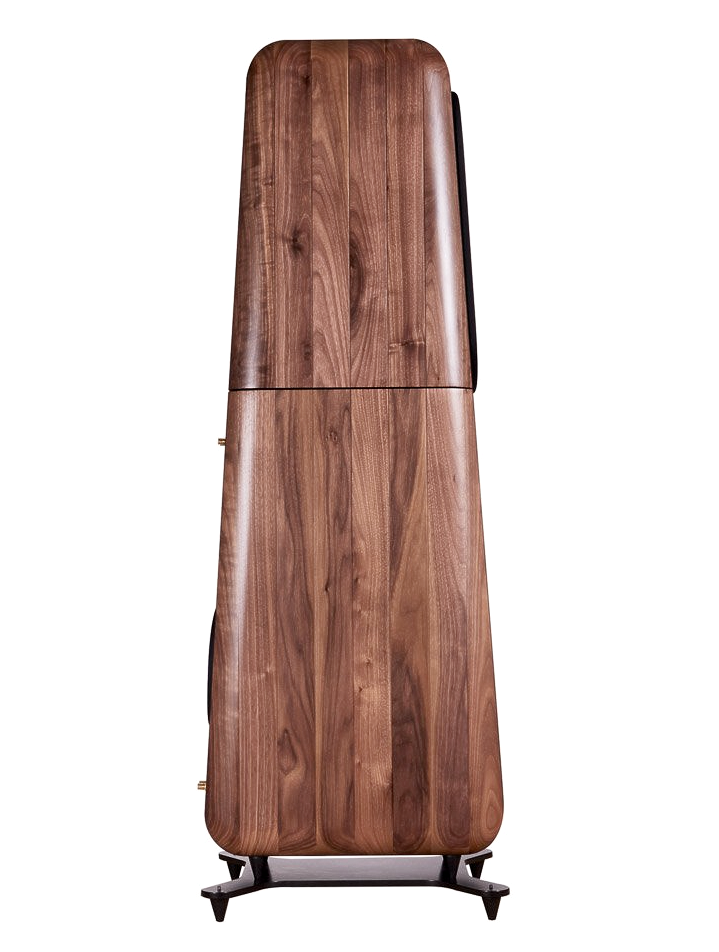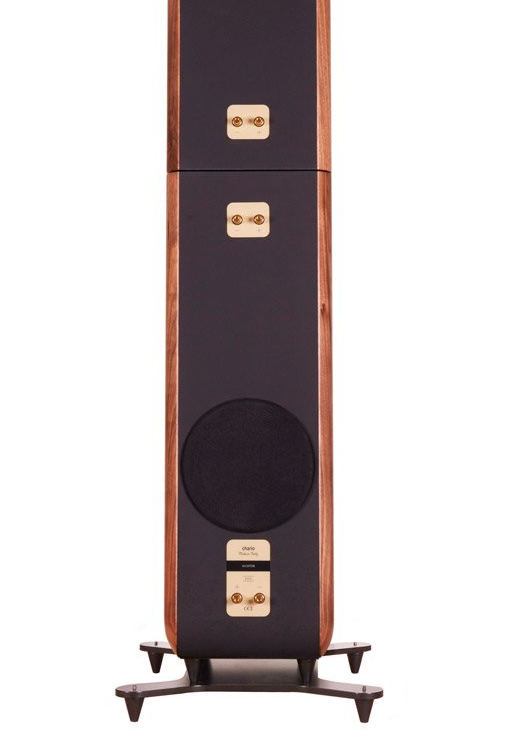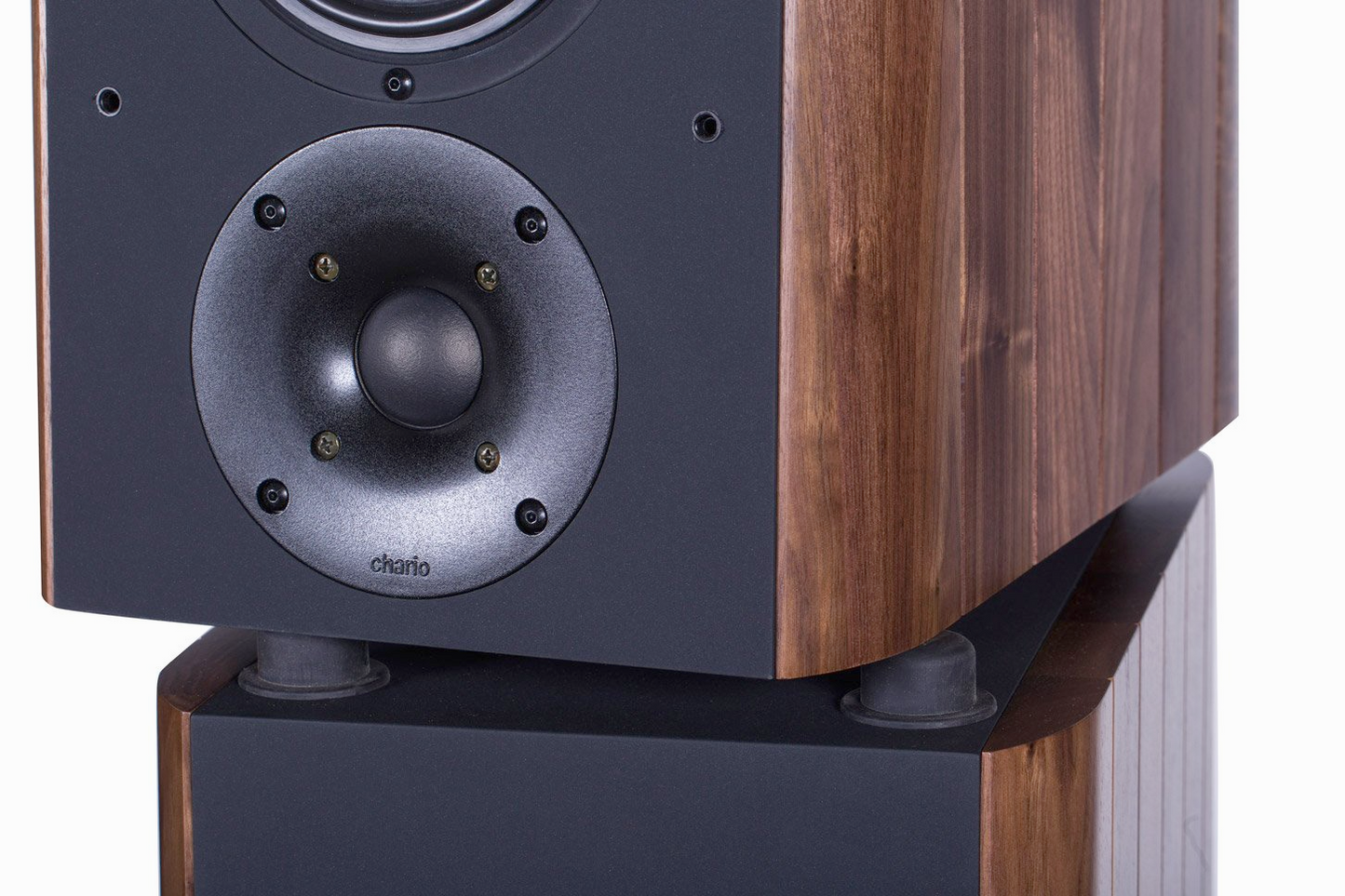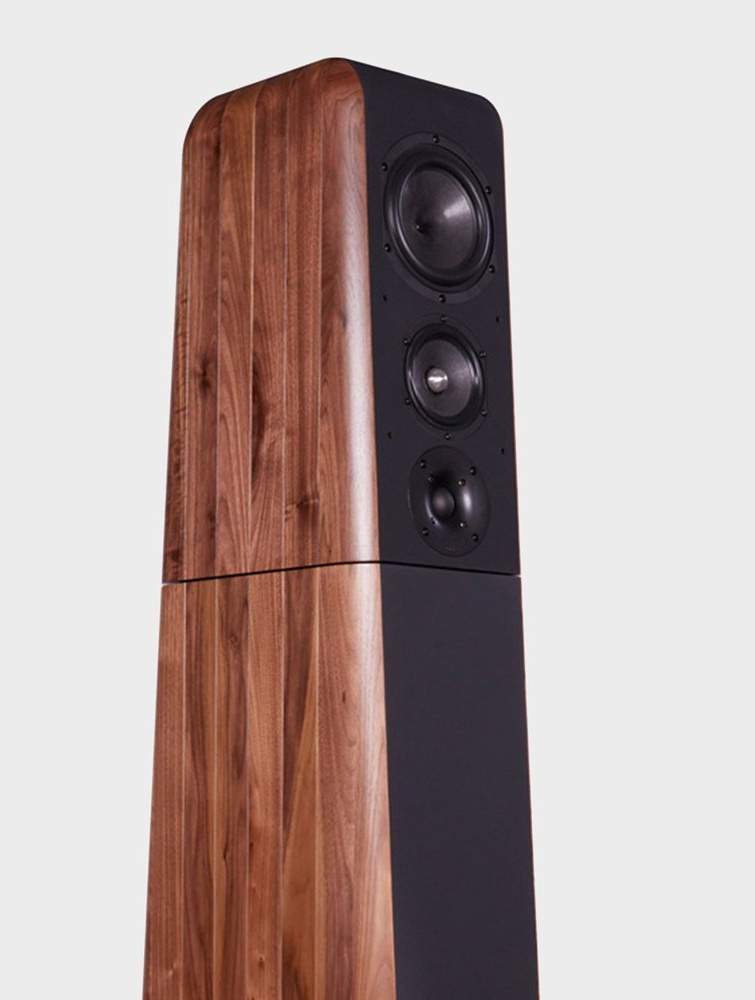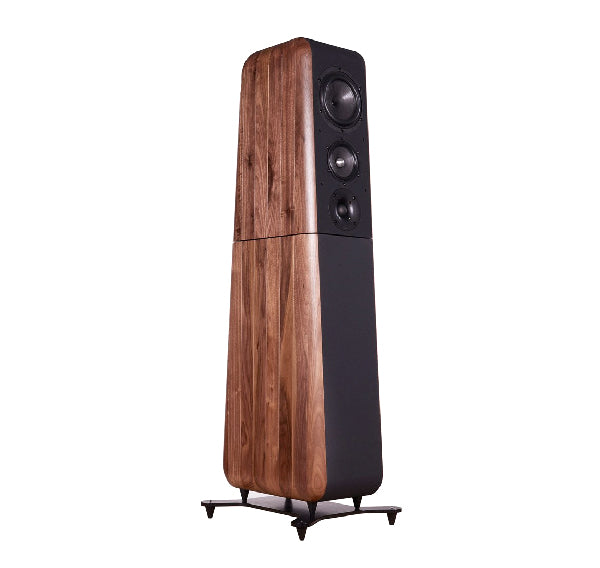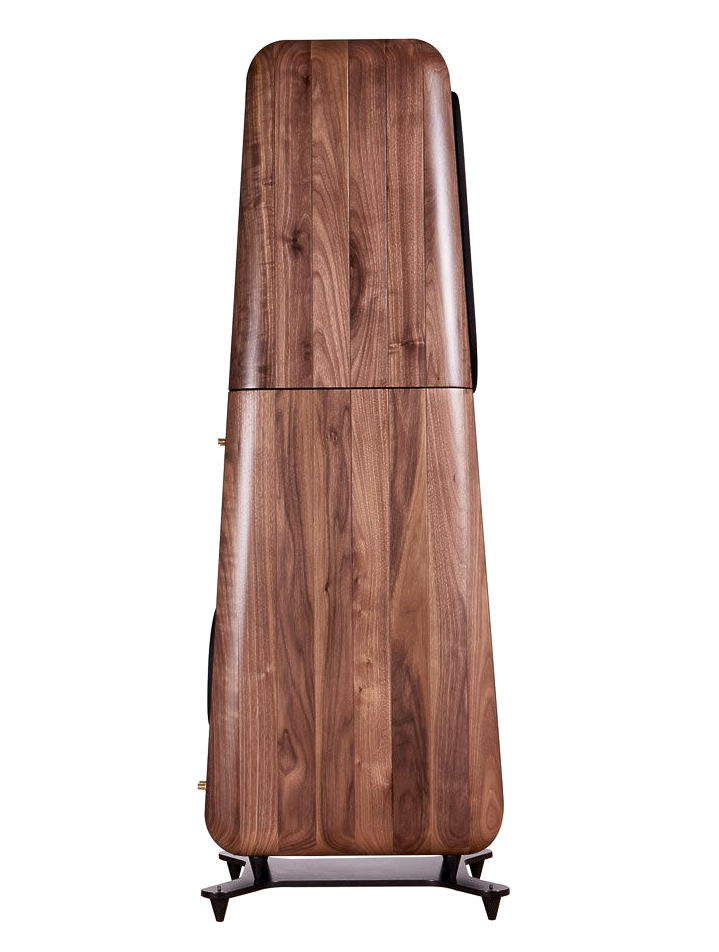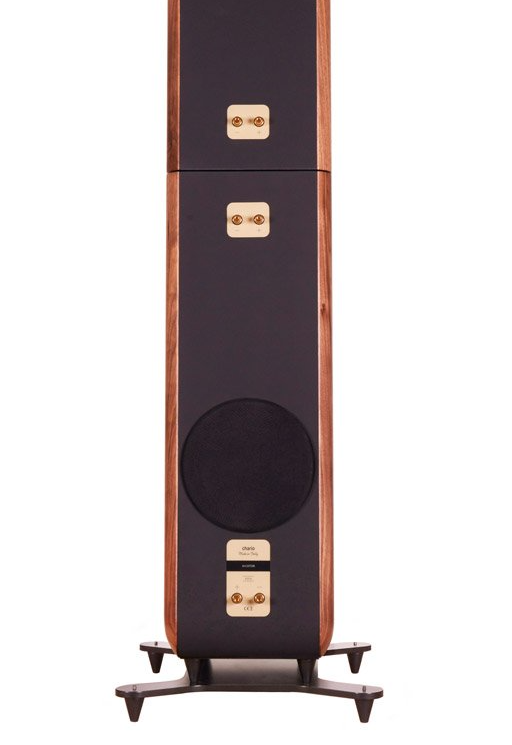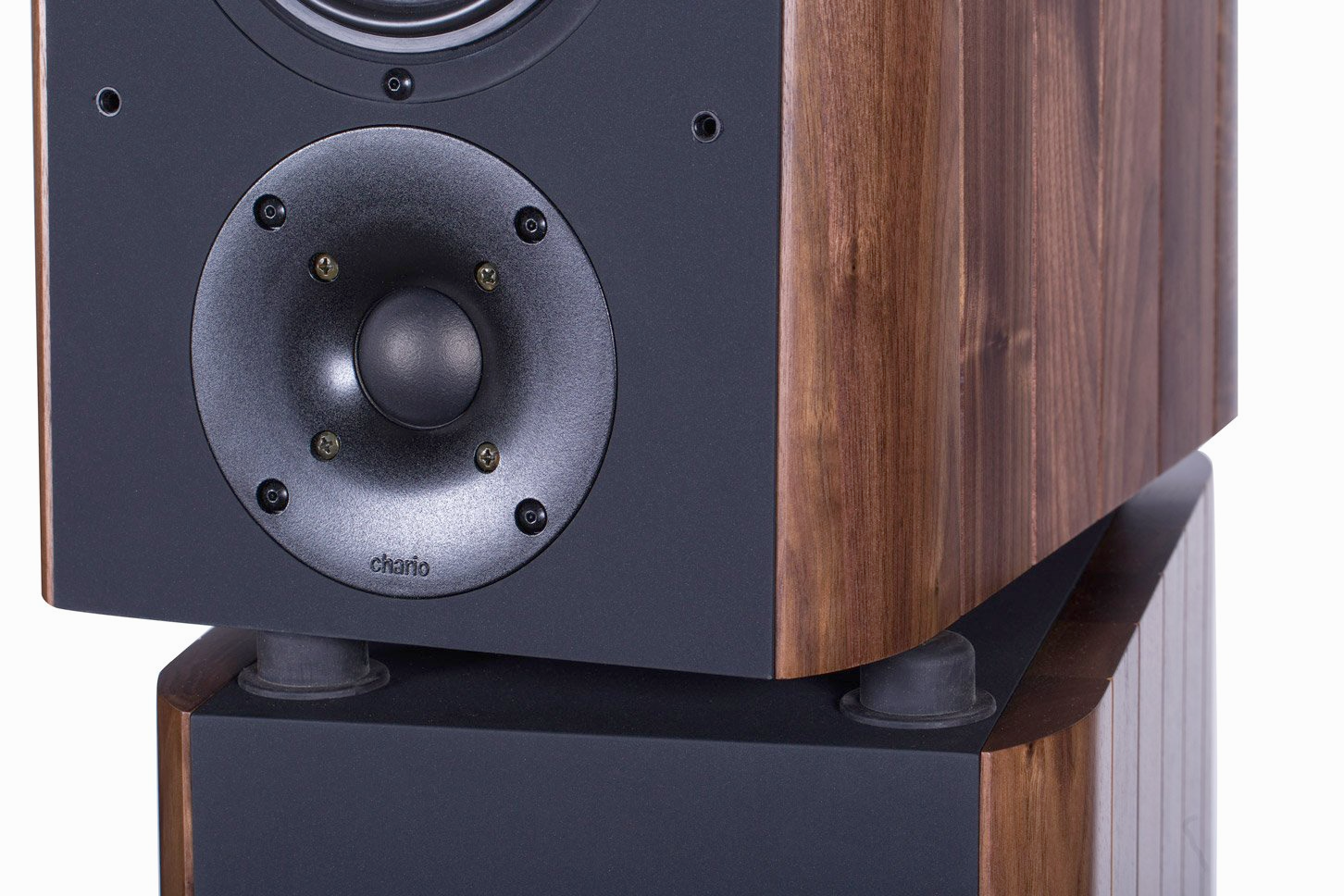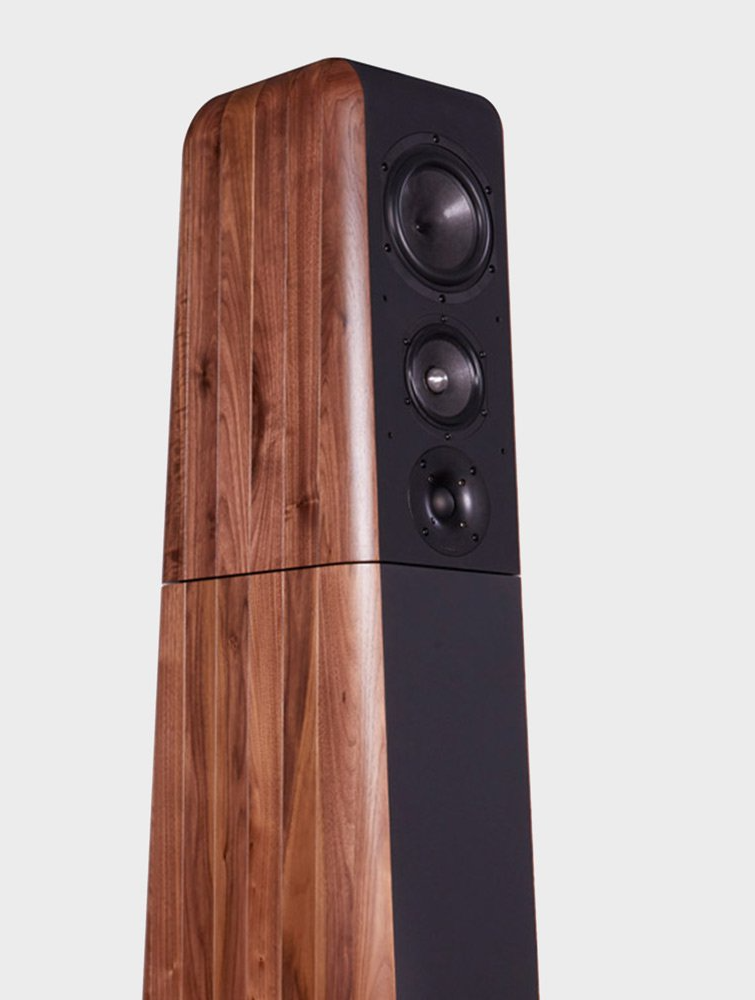Chario
Chario Aviator Aria Floorstanding Speakers
Chario Aviator Aria Floorstanding Speakers
Couldn't load pickup availability
AVIATOR
ARIA
5 way Floorstand / 2 Pieces
It is amazing how Aria it's capable to make music sound intimate and precise, the ease with it sculpted in three dimensions the instruments in space. The woofer at the top of the cabinet has, in this particular model, a specific task. All other models in the Aviator series interact with the environment to limit unwanted reflections, increasing the intelligibility of music. Aria dramatically improves this by employing a variation that allows the regularization of the entire audio spectrum. The driver positioned in the upper part of the cabinet – a 170 mm woofer – is responsible for this extraordinary result.
Next level Performances
A full-bodied, neutral sound guaranteed by the T-38 tweeter that provides the best performance with any kind of interpretation and the use of a 130mm or a 160mm woofer to produce excellent performance even in normal domestic environments where little to no acoustic considerations have been made. Sturdy and stylish, each speaker of Aviator line fits perfectly in every room, always offering a detail-rich sound reproduction amazing for low-frequency extension and dynamics.
Back Woofer
The floorstandings models of the Aviator line are equipped with an additional woofer, also derived from Academy ones as the front drivers, in the rear part of the cabinet. Amelia uses a 130 mm woofer, Cielo a 160 mm and Aria a 200 mm.
All in addition to the woofer of the same size placed on the bottom of the speaker. This particular configuration has been chosen to increase the performance of the speaker and make the sound even more enveloping
Psychoacoustics Target
Aviator Aria
As any other Chario project also for Aviator line we have studied different aspects of science, to its realization: the electroacoustic is the basic research that allows us to realize the components through the study of real behavior and application of the fundamental electroacoustic parameters.
Psychoacoustics allows us to understand how our perceptual system (ears, eyes, brain, smell etc ) perceives the components of reproduction and how it decode them.
The acoustic environment allows us to understand how the environment affects drastically the reproduction, then how the energy is transferred into the listening room and what the listener receives.
The proper interaction of the results of scientific research in these fields allow us to provide a natural sound and respectful of the main component to be considered: the man.
Specifications
Low Frequency Load
- Vented NRS
Configuration
- 5 -way Reversed Vertical Alignment Floor Standing
Drivers
- 1 tweeter 38mm T38Waveguide
- 1 Midrange 130 mm ROHACELL® Poly-Ring NeFeB motor
- 1 Woofer 165 mm ROHACELL® Full-Apex™ Poly-Ring NeFeB motor
- 2 Sub 200 mm Natural Fibres NeFeB motor
Sensitivity
- 95 dB SPL normalized to 1 m / 2.83 Vrms / decorrelated L/R
- pink noise in ITU-R BS 1116-1 compliant listening room
Low Frequency
- 35 Hz @ -3dB referred to C4 WETS
5 Way Reversed Array
- Conventional crossover frequency concept substituted by overlapping range
- From 150 to 200 Hz
- Bottom sub-Back sub-Woofer-Midrange
- From 1kHz to 1.5 kHz
- Woofer-Midrange-Tweeter
Rated Impedance
- Modulus 4 Ω (min 3.0) Argument ± 36°
Cabinet & Dimensions
Cabinet
Solid walnut and HDF. The structure comprises two cabinets: the lower contains two subwoofers; the upper contains one woofer, onemidrange and one tweeter. The two wood cases are separated by fourcylindrical proprietary-engineered elastomeric puffersacting as vibration decouplers to dissipate mechanical energy by orthogonalelongationSize & Weight
1610 x 400 x 580 mm (H x W x D) / 100 Kg
Acoustic Environment & Amplification
Speakers Orientation
Speakers should be tilted inward facing the listener
Listening Distance
Optimum speaker-listener distance > 3.5 m
Listening Layout
A carpeted floor in front of the speakers is recommended
Side and Back Walls
Should be at least 1m away from the speaker front baffle
Suggested Amplifier
Normal amping 250W/4Ω Max average power
Bi-amping 130W/4Ω Max average power
Share
